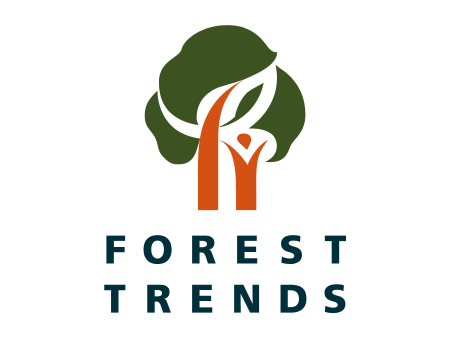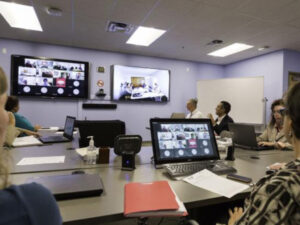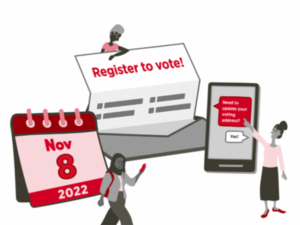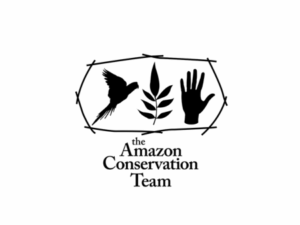Forest Trends Association engages in innovative finance for conservation, promoting healthy forests, sustainable agriculture, clean water, robust climate action, biodiverse landscapes, and strengthening communities.
Michael Jenkins of Forest Trends Association spoke with Jessica Kantor on January 29, 2024. Click here to read the full interview with insights highlighted.
Jessica Kantor: Can you introduce yourself, the organization that you’re with, and the problem that you are working to address?
Michael Jenkins: I’m the founding president and CEO of Forest Trends. We’re a nonprofit focused on putting value onto nature. The reason that we’re losing our natural infrastructure, our forests and our rivers, is because we treat them like utilities that you don’t have to pay for, and we’re abusing them. Compared to other conservation organizations, our approach is an unusual one, in that we look at market instruments that can bring real value: carbon markets, water markets, biodiversity markets, all of the ways that we can bring more investment into nature.
Jessica Kantor: And how exactly are you doing that?
Michael Jenkins: What we’re trying to do is build out what these market mechanisms could look like, demonstrating how they work on the ground, and building out a platform of transparent information. For instance, Platts is a 60-year-old platform assessing oil prices, but before there was this formal marketplace, there were just freewheeling oil transactions. You see the same thing with Bloomberg or Dow Jones and what they brought to financial markets. Instead of just a set of transactions, you build a marketplace.
In keeping with those principles, we’ve created the Ecosystem Marketplace, which is designed to be the Bloomberg of environmental markets. We do all the work to inform the broader community about how to build these marketplaces out. This involves working with financial institutions, government agencies, NGOs [Non-Governmental Organizations], local communities, engineers, and any other concerned parties, and showing them how to build out market instruments. We’ve built carbon markets with indigenous communities in Brazil, demonstrating how these new instruments can be created. We created the Ecosystem Marketplace because often when you’re in the early stages of thinking about emerging markets, information is crucial. We supply that information, helping build the infrastructure for these markets to grow.
Jessica Kantor: In terms of the reception of these markets and partnerships, how are your efforts faring so far?
Michael Jenkins: It’s been going well, for many reasons. These ideas are becoming increasingly mainstream: just a couple of years ago at the COP [Conference of the Parties] in Glasgow, Joe Biden, alongside other prime ministers and presidents, discussed nature-based approaches to environmental protection, using market value as an instrument to address climate change. So I think this is getting attention at the highest levels, and from that, we’re seeing more policy recommendations and investments in nature.
What we’re really trying to do is green the economy, which takes time. We want our work to provoke bigger questions about the ways all of us value nature. Historically, we’ve always cut down forests and replaced them with soybeans, or oil pumps, or big box stores, because we know that those make money. We don’t consider the inherent value of the forests, how nature can actually make money if we know how to use it.
Jessica Kantor: What metrics do you use to measure success in your work?
Michael Jenkins: We look at several different types of metrics. Some of them are quantifiable, like how much money generated by our initiatives is going towards conservation and nature. We look at the number of people, from local and indigenous communities, that we’ve been supporting and building marketplace capacity around. We look at the policies put into place as a result of our partnerships, the environmental policies that enable these supportive markets. What’s been harder to measure, but much more meaningful, is whether our work is being absorbed into the systems of the countries we work with and making a lasting impact.
For instance, we have a super successful project in Peru, where we’ve been working on watersheds at the national level. We work in 50 of the 53 watersheds in all of Peru, and we work with all of the ministries: finance, agriculture, women, housing, environment, and agriculture. We also work with the water agencies. So when I think about lasting impact, I think about this deep level of partnership, an institutionalization of these ideas. We know we’ve had an impact in Peru because we’ve altered the way they think about their water and their natural infrastructure. This kind of institutionalization is a much more profound way of measuring success, and I do see a lot of progress in this area, but the metrics are different. We’re assessing an abstract sense of built capacity rather than simply counting the number of workshops we held.
Jessica Kantor: Many social change organizations have found success working with local beneficiaries to help them develop their own agency. Are you engaging locals in the same way? If so, how?
Michael Jenkins: Our work with local and indigenous communities is central to what we do, particularly around the Amazon region and the Macon region in Southeast Asia. What’s so appealing about environmental ecosystem services and environmental markets is that these are markets that are still in formation, so we have a hand in actively building them. The services provided by these markets come from rural areas, from forests and agricultural lands. So there’s an opportunity to build markets that benefit local communities, indigenous communities, and small farmers. Most people think of markets as forces that have historically exploited poor people, but here we have an opportunity to create markets which benefit these communities.
We ensure that the market benefits from these ecosystem services are flowing directly into the communities who live in and around these spaces and act as their stewards, whether it’s clean streams or forests or mangroves or coral reefs. When we think about our strategy as an organization, we think about it as if we’re setting the dinner table. We need the government agencies that set the regulations, we need the investment community, we need local communities, and we need the businesses that are in and around these areas. Assembling this coalition of unusual suspects is work we love to do. When we look around that dinner table and see all different kinds of people, that’s when we start to feel like we’re getting somewhere, because it takes all of those pieces together to move something like this forward. Even if local communities feel empowered to do this work, they will not succeed if they’re working against their governments, businesses interests, or financial institutions. Just as governments won’t succeed if they don’t have that buy-in from their communities, just as businesses won’t succeed if their clients don’t believe in what they do and won’t buy their products. Having that coalition is really critical to success, but we do focus on market benefits going to local communities.
Jessica Kantor: What are some of the obstacles that you’ve encountered in this work?
Michael Jenkins: When we started down this path 25 years ago, we thought that there was a discrete set of things that could be done to make a real difference: put a price on carbon, put a price on water quality, things like that. But the reality is that our project is much bigger and more ambitious. We’re figuring out how to turn entire economies around. And when you’re working on systems-level change, there’s a lot of inertia in that system that fights you. So the obvious opponents are the oil, gas, and coal sectors whose goals directly contradict ours.
We’ve found great success working in Peru, but faced some major challenges. Over the past six years there were five different presidents in Peru as well as a lot of turnover in other levels of government. So you have massive political instability, not only in Peru but around the world, which makes it hard to keep long-term efforts moving when the people who are in charge of these efforts keep changing.
Another obstacle is bridging the world of modern economy with traditional views on development; they’re like two different languages. It’s not that indigenous communities or local communities represent one mentality and modern marketplaces represent another, it’s many different sectors that complicate things. People arrive at this issue from different places, whether they’re a scientist, policymaker, business person, or community organizer. To bring all of them together around this table, you need to create a common language to build trust and understanding. And this only happens with time, commitment, and strategy.
But alongside these obstacles, there are exciting things happening. To use Peru as an example again, despite the chaotic political setting there, we’ve been able to work with a bunch of ministries and leaders in Peru to develop this unique program where they’re investing in natural water infrastructure. They’re utilizing wetlands and lagoons and forests as a way to help them respond to droughts and flooding brought on by climate change. In doing this work over the past 10 to 15 years, we’ve been able to build that level of institutionalization I mentioned earlier. There’s a robust group of leaders in this sector in Peru, and we’ve been able to help these officials gain recognition on a global stage. We’ve taken them to the World Water Week in Stockholm to demonstrate their global leadership to this audience. That’s what allows us to push through all the other troubles: when people feel like they’re leaders, they take pride in what they’re doing.
Jessica Kantor: How many different countries or individual communities are working in now?
Michael Jenkins: We’re working towards systemic change in around 20 countries. We work with a lot of communities, around 100 indigenous and local communities in Latin America alone, for instance. But again, what I find more powerful is not any one activity happening at a local scale, but when that activity happens alongside a team of people on a regional scale. So we’re working with the Brazilian government and ministries, with companies, and with these 100 or so indigenous communities. It’s that larger coalition building that I find most impactful.
Jessica Kantor: What do you think is needed from other actors in this space in order for there to be lasting, and scalable, systemic change?
Michael Jenkins: Financial resources are incredibly valuable. The impact we can deliver to countries and communities is usually limited by the resources that we have. But there’s so much newfound attention being brought to climate and nature that we can finally start to see a way to the level of financial resourcing that we need. 20 billion, even 200 billion: these are the kinds of numbers we need to make this transition to investing in natural infrastructure.
I think the bigger issue is finding ways for people to accept change, to open their hearts to it. If you’ve been in a certain profession for a long time and suddenly you’re told it has to change or you’re going to be out of a job, it’s going to be hard for you to engage with this issue in a constructive way. So we need to come to the table with an understanding that we are all a part of the solution. People need to imagine a future that’s different from what the past has looked like.
Jessica Kantor: How do you see your work evolving over the next five years?
Michael Jenkins: We’ve just finished building a strategic plan, and as we were developing that plan, we decided not to do a traditional five-year structure and to have the goalpost be 2030 instead. Science says that if we don’t make significant shifts in the way we go about our business as a planet, the climate is going to unravel starting around 2030. So we have seven years to make a difference, and I want to be focused on doing everything we can over that time. We’re taking what we’ve learned in places like Peru or Vietnam and applying these lessons to other countries.
Forest Trends is in a moment where there’s potential to have a much greater impact than ever before, because we have 25 years of experience working in many of these places and have learned a lot over those years. At a time when new solutions are needed, we have ‘shovel ready’ projects, we have actions that can make a difference, and we have a track record of being able to work across different sectors and interests. So we want to ramp up the work that we’re doing now, and we’re at a great moment to be able to do that.
Jessica Kantor: How much of your time is spent on educating the public and reframing public perception of this issue? Do you think more effort is needed in that space?
Michael Jenkins: A lot more efforts. Everybody needs to be sitting around the table, it can’t just be policymakers. I spend pretty much 100% of my time talking about this to friends and strangers. I believe in this mission, I love doing it, and there are opportunities for everyone to get involved.
Jessica Kantor: What do you think is needed from other actors in the public education and engagement space? Are we in a place where the public is open to learning and changing?
Michael Jenkins: I think we’re in a way much better place now than when I was growing up. When I went to high school, there were no environmental studies classes. Now you see that built into a lot of schools, and students have a lot more opportunities to learn about this issue. But we still need to make the leap from ‘environmentalist’ being a profession that someone occupies to an identity we can all take on. It’s about communicating the value of nature to everyone, communicating the ways that everybody can be a part of the solution, whether you’re a cattle rancher in Colorado or a small farmer in Senegal. When you go to the grocery store and you make decisions around what you’re going to buy, you have a role to play.
For some people, the idea of being an environmentalist implies you’re a far-left liberal or out-of-touch tree hugger. But we all care about the planet, even though we might not be thinking about it all the time. People need to feel they have agency to be a part of the solution. But this issue is being discouragingly framed as a mandate from above to close businesses, take away jobs, stop driving cars, stop using gas stoves. Instead, we should be encouraging people to ask, ‘What else can I do?’ and highlighting the small, everyday ways that they have agency.
Jessica Kantor: Last weekend I went out with the National Forest Service and helped with forest fuel mitigation, but none of my friends were interested in joining. So I agree, I think there’s a lot of public perception around needing to protect the environment, but actually getting people to engage in activities themselves is challenging.
Michael Jenkins: In so many parts of the world, we’re stuck to our screens, and so we don’t get out to lend a hand in our communities. We also work with the Forest Service around the increasing issue of forest fires. But a lot of the local ranchers, farmers, and local communities are against the Forest Service, because they see the organization as a part of the government, and they don’t want the government telling them what to do. So you need to find a way for people to understand what needs to be done in a way that doesn’t feel threatening.
You have a lot of power to change minds on your own: maybe when you’re having lunch at a cafe after volunteering with the National Forest Service, you mention to the person next to you what you were doing, and you find a way to communicate the issue to them more effectively than anything the US government can do, because it’s coming from you and not from a big institution. So it’s on each one of us.
Jessica Kantor: Is there anything that we didn’t cover that you feel is important to add?
Michael Jenkins: It really takes everyone’s participation to make this happen. If we’re going to solve this problem, we want to have everybody at that dinner table that needs to be there. So we can’t just work solely with the NGO community, with scientists, with policymakers, with local communities. If you don’t have them all together, we’re never going to be able to succeed. And these coalitions are hard to build, but once you have them, they’re magical. It’s like when you were trying to get your friends to join your volunteer work: that’s a coalition you’ve got to build. And once it happens, you’ll start to realize how much things have changed, and when you ask for people to join you, half of them will.
When we built Forest Trends, we wanted to be small, global, and nimble, and the smallness forces us into these coalitions. We didn’t want to build a bigger organization, because I didn’t think that any one institution was going to be able to solve these problems. In my lifetime, climate issues have clearly all become global. So a sense of nimbleness is important, because there’s been so much change, and the pace of change accelerates so rapidly. And we need to have unrestricted resources to be able to respond nimbly to opportunities as they arise. We need to maintain that nimbleness on an individual level, too: if I was taking one approach for a while but it’s no longer working, I need to shift to match these new circumstances, and approach the issue in a new light.
Jessica Kantor: Thank you so much for sharing your insights with me today.
Click here to read the full interview with insights highlighted.
Jessica Kantor is an independent journalist specializing in health, human rights, and social impact. Her work can be found in Fast Company, Healthcare Quarterly, The Las Vegas Review-Journal, and others. She is a living kidney donor.
* This interview has been edited and condensed.
Read other insights from what’s working in social innovation.







